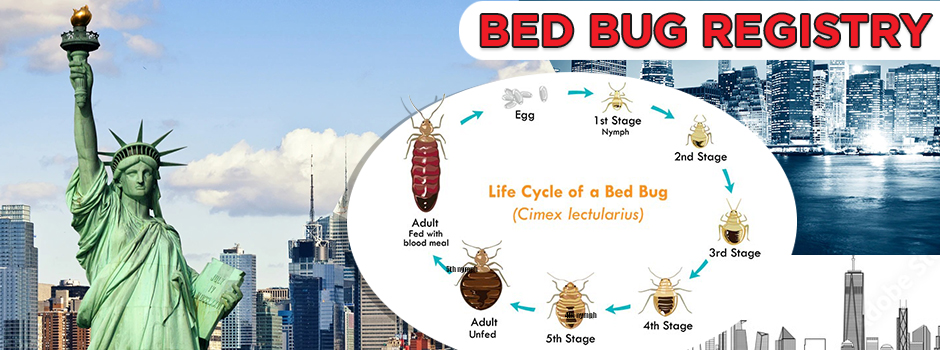Bed bugs are insects that feed on blood and can survive months without feeding. Their bites are often itchy, and sometimes painful.
Bed bugs are a growing problem everywhere. By spraying for insects less often, and using less dangerous chemicals when we do spray, our homes are safer for our families but also less toxic for bed bugs.
Bed bugs are hitchhikers. They travel by hiding in luggage, clothing, beds or furniture. This can make bed bugs a special problem for hotels, apartments, and when using second-hand furniture. Once bed bugs are introduced, they spread from room to room throughout a building. Keeping a clean home can limit cockroach and rodent problems, but will have little effect on bed bugs.
People sensitive to bites can have a raised, red swelling at each bite site or may develop a sensitivity that can include nervousness, and sleeplessness. Symptoms may also appear several days after being bitten. Bed bugs' feces, casings, and other materials can be asthma triggers in some people. Although bed bugs feed on blood, there is no evidence that bed bugs transmit disease.
Bed bugs vary in size, and in color, from a red-brown to a light brown. Adult bed bugs are 1/4 inch, or about the width of a pencil.
Bed bugs move quickly. The females lay eggs in cracks and other hidden areas. The eggs appear tiny, white, and are hard to see without a magnifying glass. Bed bugs are active at night and hide within 5 to 20 feet of where people sleep. They tend to gather in tiny crevices and other places, especially in mattresses, box springs, and head-boards.
Seeing two or more of these signs indicates that there is a bed bug problem in that room:
Your healthcare provider may prescribe antihistamines or corticosteroids to reduce allergic reactions, and/or suggest the use of antiseptic or antibiotic ointments to prevent infection.
It is best to hire a professional pest control firm. They will carefully inspect all places where bed bugs may hide and use an approved insect spray in cracks and other hiding places. Do not use any insecticide on a mattress unless the label specifically discusses application to a mattress. Most household sprays are not suitable for application to mattresses. Any infected items like mattresses or upholstered furniture must be thrown out or treated. Treatments must be very thorough or bed bugs will soon be back. Methods to control bedbugs populations include:
To make sure that bed bugs dont come back, you should:
The Rhode Island Housing Maintenance and Occupancy Code states that if the infestation is limited to a single dwelling unit, extermination is the responsibility of the occupant. However, if the infestation exists in two or more units, or in shared or public areas of a building with two or more units, then extermination is the responsibility of the building owner. Contact the Minimum Housing Program of your city or town if your landlord or building owner has not addressed a bed bug infestation that involves a common area or two or more units.
Follow this link:
Bed Bugs: Department of Health - Rhode Island

 Residence
Residence  Location
Location 
